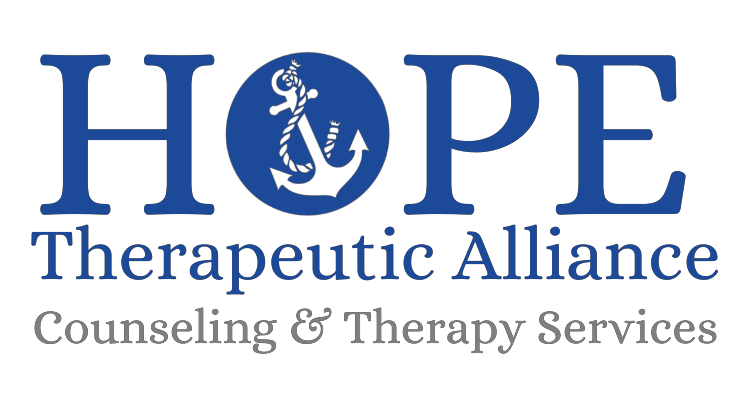Trauma and Relationship Dynamics Through Trauma Therapy in San Antonio
Imagine trauma as a giant wave that knocks you off your feet. It crashes into your personal life, leaving destruction in even your closest relationships. It’s true that trauma messes with your connections, so it’s important to know how therapy can help rebuild the bridges that trauma often destroys.
Is there a link between trauma and attachment styles?
When bad things happen, it can challenge how you connect with others. This is especially true when it comes to attachment styles, which are basically the ways you learn to behave in relationships as kids. Trauma can impact attachment styles, often leading to unhealthy and unsustainable relationship patterns, like being clingy or pushing people away. These patterns show up in real ways. Imagine always expecting the worst, constantly looking for signs of danger in people you care about, keeping your emotions on lockdown, or never letting anyone too close because you're afraid of getting hurt again.
This hypervigilance and distrust make it hard to build strong, healthy relationships. It's nearly impossible to make lasting friendships when you're scared to share your secrets or get close to someone. The difficulty of feeling safe and loved when you always expect things to fall apart is also a sign of trauma that shows up in relationships.
Understanding how trauma affects your attachment style is the first step to healing. By recognizing these patterns, you can start to build new, healthier ways of connecting with people. Think of it like learning a new language for relationships, one where trust and openness are the words you choose instead of fear and distance. Healing takes time and effort, but with the right tools and support, you can build the connections you deserve and rewire your attachment style.
Trauma and communication: Does trauma affect the way we communicate?
Many people wonder if trauma can affect the way we communicate. Trauma is like experiencing a storm that shakes your very foundation. After the rain clears, the world feels a little different, and communicating can feel like navigating a new terrain. This is often the case for people who have experienced a traumatic event. The psychological impact can make expressing yourself clearly and effectively a difficult task. This often leads to misunderstandings, conflicts, and a sense of isolation.
Are these coping skills or roadblocks to trauma?
In the aftermath of trauma, your brain develops coping skills to protect you from further pain. These strategies, while understandable, can sometimes be a barrier to healthy communication. Avoidance is a common coping skill used to protect against further victimization. There is a withdrawal from conversations that is often accompanied by shutting down emotionally to avoid triggering memories or overwhelming emotions. Acting out aggressively is also a common coping skill used. Reacting impulsively or lashing out when you feel threatened or misunderstood is one way of trying to protect yourself. While these serve as protective barriers, they can create walls between us and the people we care about.
How do you rebuild bridges after experiencing trauma?
Fortunately, trauma therapy can be a beacon of hope. By focusing on:
· Communication Skills: Learning to express needs, feelings, and thoughts in a clear and assertive way can bridge the gap between our inner world and the outside world.
· Emotional Self-Regulation: Developing techniques to manage difficult emotions, like anxiety or anger, can prevent them from hijacking our communication.
Therapy provides individuals with the tools and strategies needed to navigate these challenges, rebuild trust, and foster healthier connections. By understanding the impact of trauma on communication and actively working to overcome these challenges, we can rebuild bridges, strengthen relationships, and reclaim our voice.
Is it possible to have trusting relationships again after experiencing trauma?
Visualize a glittering mosaic, each piece carefully placed to form a beautiful picture. Now, picture a storm sweeping through, scattering the mosaic, leaving shards of brokenness in its wake. The aftermath of a storm is the life many trauma survivors must navigate. Trust, the lifeblood of relationships and secure connection, becomes fragile after trauma. Betrayal, like a deep crack in the mosaic, can further shatter fragile trust, leaving trauma survivors feeling lost and questioning everything they once knew. Rebuilding trust is like piecing together this shattered mosaic, each step requiring patience and meticulous care. It's more than just waiting for time to heal the wounds; it demands a personalized approach that recognizes the unique wounds of each survivor.
Choosing to begin trauma therapy can be a safe haven where trust can be slowly and lovingly rebuilt. Key elements guide this process:
· Validation: Imagine a gentle hand holding a fractured piece, acknowledging its cracks and its beauty. Validation is that hand, affirming the survivor's experiences and feelings, creating a space of understanding and acceptance.
· Transparency: Think of clear sunlight illuminating the mosaic, revealing where each piece fits. Transparency builds bridges of trust through open communication, allowing both the survivor and therapist to navigate the journey together with honesty and understanding.
· Sustained Responsiveness: Just as a mosaic artist listens intently to the whispers of the stones, a therapist must be attuned to the survivor's needs and concerns throughout the healing process. Feeling heard and supported builds confidence and strengthens the foundation of trust.
The path to rebuilt trust is paved with collaboration. Survivor and therapist, hand in hand, piece by piece, reassemble the mosaic, creating a new picture, stronger and more resilient than before. The shattered fragments may still bear the marks of the storm, but they now tell a story of healing and triumph over adversity.
Begin trauma therapy or relationship counseling with HOPE Therapeutic Alliance
Meet with one of our trauma or relationship specialists.
Begin experiencing the benefits of living more connected to ones you love.



